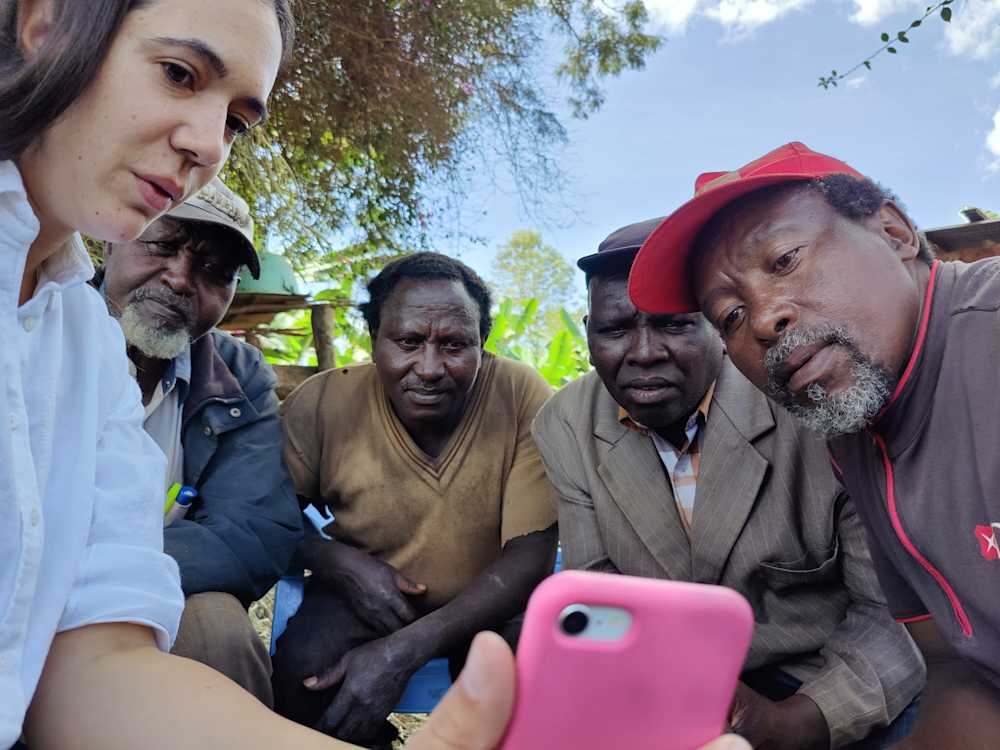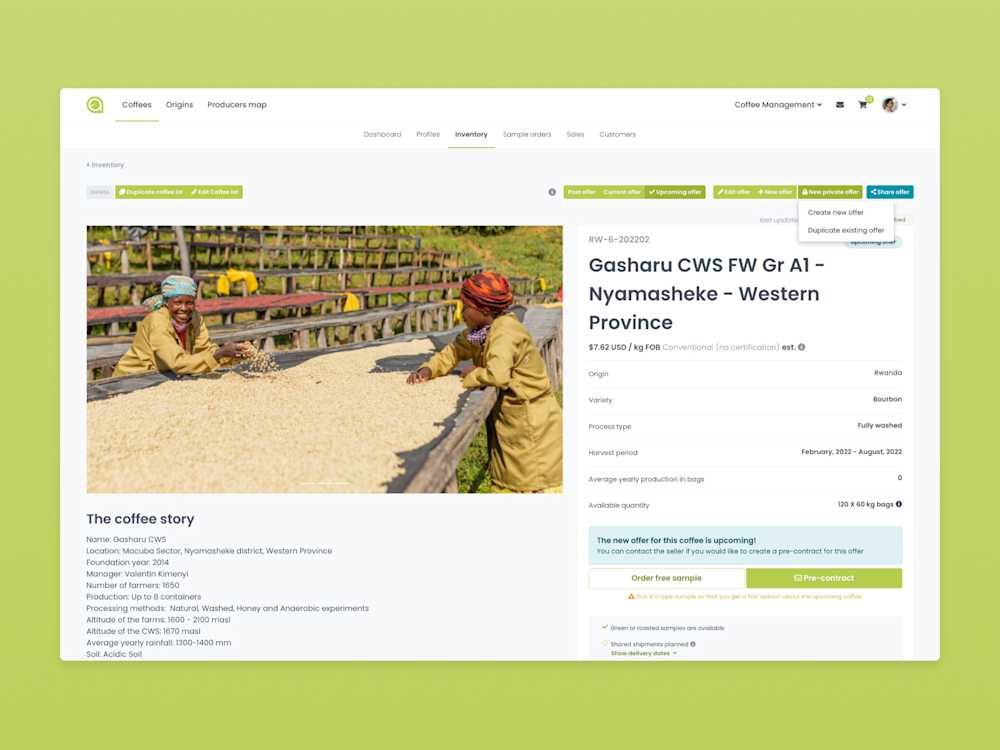Empowering smallholder farmers: the role of technology and direct trade in coffee and beyond
We meet to drink it, drink it to waken and even find it as an ice cream flavour. Coffee is more than just a beverage, it’s a culture, and an industry that generates more than USD 200 billion annually. So, what’s behind this elixir that jump starts our mornings and what does the bean to brew journey look like for all involved?
The challenges of the smallholder farmers in coffee production
Around 95% of the approximately 12.5 million coffee farms in the world are smaller than 5 hectares and therefore categorized as smallholder farms. Despite its impressive market share, widespread consumption, and rising demand, coffee producers struggle to stay afloat. It’s been estimated that smallholder farmers receive 10% or less of the final retail price1 and nearly half of all coffee farmers live below the international poverty line of $3.20 a day.2
Key in tackling this issue is the rise and development of new technologies such as blockchain, mobile applications and online platforms which can offer new economic opportunities to farmers and roasters by providing access to services and information.
The role of Blockchain
Blockchain technology for example provides coffee farmers with enhanced supply chain transparency. By tracing the journey of their coffee across the value chain and collecting data on the quality, farming practices, processing methods and environmental conditions, farmers gain valuable insights. These insights empower farmers to optimize their operations by shortening the value chain and bypassing unnecessary intermediaries, leading to increased revenue. Additionally, blockchain simplifies the certification and authentications processes, enabling farmers to effectively market their coffee in a time when transparency is increasingly demanded as we tackle many of today’s challenges, be it environmental or social.3
Mobile access and financial autonomy for smallholder farmers
The arrival of mobile applications had made crucial information easily accessible to farmers, revolutionizing farming and business practices. Farmers can now conveniently access vital data such as weather forecasts, market prices and geospatial information through a range of mobile apps. Farmers can also gain access to financial services without needing an established relationship with a financial institution. With features like digital wallets, payment solutions, financial record keeping, and simplified loan applications, farmers can enhance their financial management and gain economic autonomy.

The rise of online marketplaces: Democratizing the Coffee Supply Chain
Also, transformative to the business of coffee is the rise of online marketplaces, enabling direct trades between farmers and roasters. One such platform provider is Algrano, a Swiss-based start-up with a mission to democratize the coffee supply chain through technology.
Algrano: A powerful online marketplace for coffee
Algrano's online marketplace serves as a powerful catalyst, connecting coffee farmers and roasters on a global scale. By leveraging cutting-edge technology, Algrano removes barriers and fosters direct communication and collaboration between the stakeholders. By bypassing intermediaries, Algrano promotes fairer and more equitable trade practices throughout the coffee supply chain. Algrano was founded in Switzerland in 2015, and since then has won a number of awards, the most recent one being the Speciality Coffee Association's "Best New Product" award in 20224. In addition to managing logistics, quality control and financing, Algrano also provides the stakeholders valuable data which is collected on their trade and can be used to improve business making decisions.

Transparency and long-term relationships
Algrano places high value on transparency and discloses the entire price breakdown on the platform including their fee, which is calculated as a percentage of the FOB5 price of the coffee. Through its platform, Algrano has processed more than 3,000 coffee orders since its launch and currently has over 5,500 registered roasters and producers.
In a survey conducted by Algrano, coffee growers stated an average increase in earnings of 30% to 40% since using the platform. This is not solely due to the elimination of middlemen and autonomy of pricing. Valuable long-term relationships between roasters and producers are often fostered via the platform enabling them to share a compelling narrative on the coffee’s origin and processing techniques which can drive consumer demand. This storytelling aspect strengthens the connection and boosts revenues for roasters and farmers. These relationships also promote trust and collaboration, providing roasters access to consistent, high-quality coffee and giving farmers access to a stable customer base.
Flexibility in payment options and logistics
Roasters purchasing coffee through Algrano are given a range of payment methods and currency options as well as logistical support including storage and transportation. Roasters may purchase just a few bags of their preferred coffee, and by combining orders from the same origin, Algrano can maximize container loads and lower the roasters’ logistic cost per unit. We are excited to support Algrano on its journey to improving the coffee industry with its tech-driven approach.
1 ITC “The Coffee Guide” – Fourth Edition 2 Map of the Month: Bringing Smallholder Coffee Farmers out of Poverty (carto.com) 3 Demand is growing for increased transparency on impacts | ISEAL Alliance 4 World of Coffee 2022 Best New Product and Coffee Design Award winners announced - Global Coffee Report (gcrmag.com) 5 An Incoterm, FOB stands for Free on Board. It means that the seller clears the goods for export and ensures they are delivered to and loaded onto the vessel for transport at the named port of departure. At this point, the buyer takes over risks and costs.

Simon Hummel
Simon Hummel co-leads the Sustainable Food Debt investment team for Sub Saharan Africa at responsAbility. Since joining in 2010 he worked in various roles including portfolio management and investments in Nairobi and Zurich across responsAbility’s three investment themes Climate Finance, Sustainable Food and Financial Inclusion. Simon has a Bachelor of Science in Business Administration from FHNW and is a Certified International Investment Analyst (CIIA).